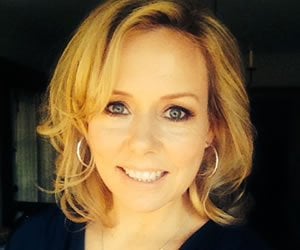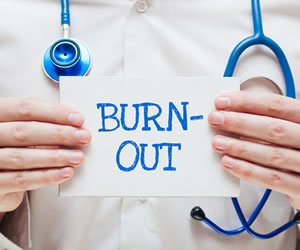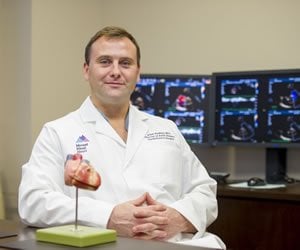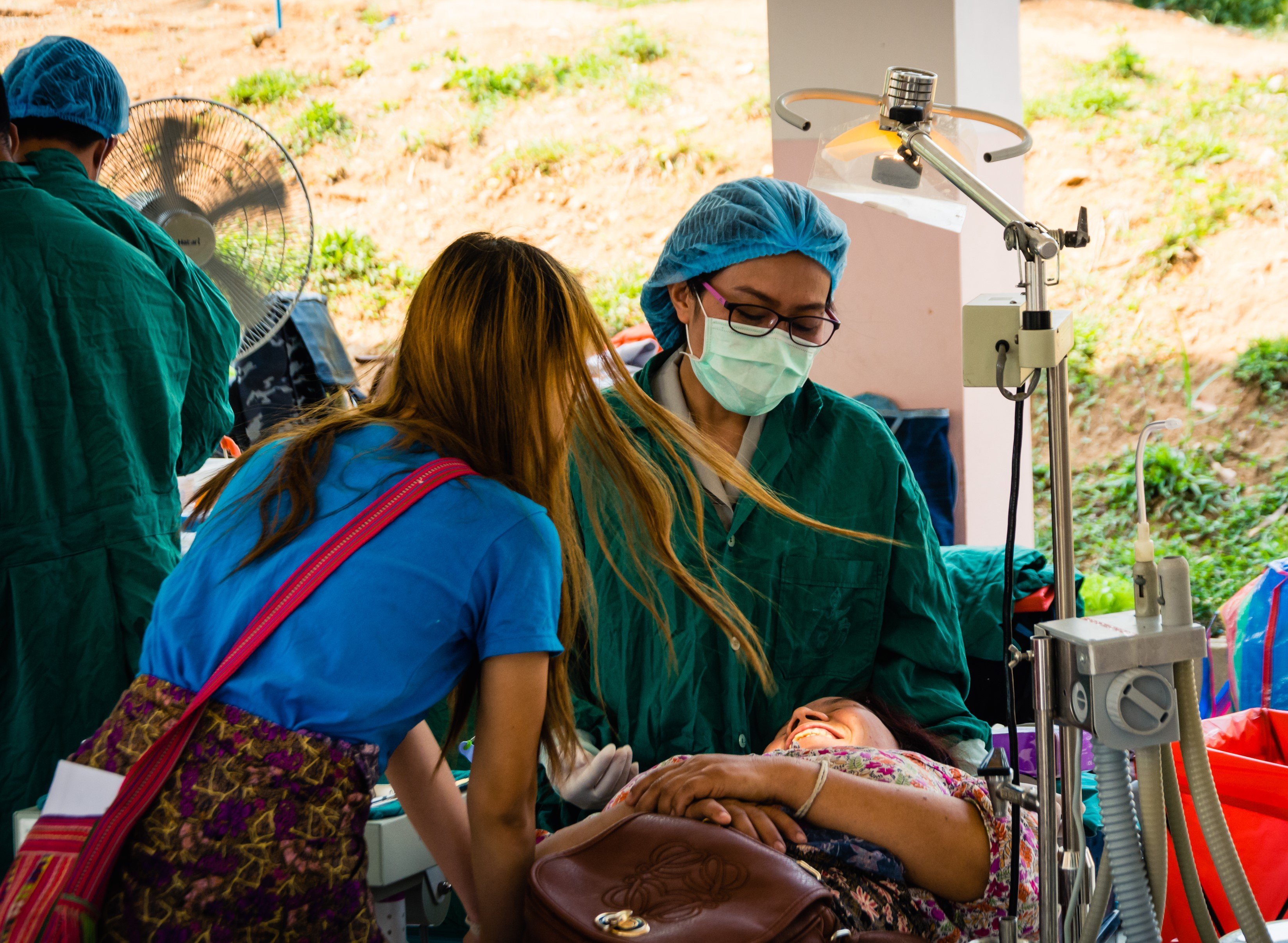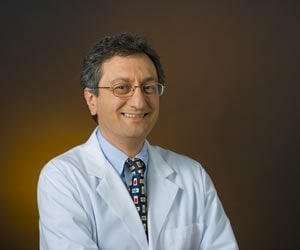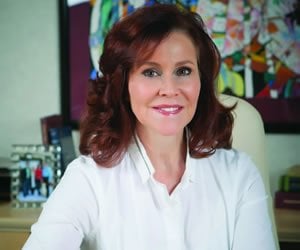Mellissa Withers, MHS, PhD, is an assistant clinical professor at University of Southern California (USC) in the Institute for Global Health and leads the Global Health Program of the Association of Pacific Rim Universities, a network of 45 universities in the region, where she teaches global health-related courses. Withers also works as an independent health research consultant, with research focusing on global reproductive health and women’s empowerment, including human trafficking, preventing unintended pregnancy, HIV/AIDS prevention among sex workers in Asia, and engaging male partners in family planning in sub-Saharan Africa. She received a bachelor’s degree in global development with a minor in ethnic studies from University of California, Berkeley (2001), a Master of Health Science (MHS) in international health systems management from Johns Hopkins Bloomberg School of Public Health (2003), and a Doctor of Philosophy (PhD) in community health sciences with a minor in cultural anthropology from University of California, Los Angeles (UCLA) Fielding School of Public Health (2010).
healthcare
Bedside Ethics: The Story of Jane and John
Reposted from here with permission. The circumstances under which Jane and I met were less than ideal. … Read more
10 Signs You're an Intern
1. 2 Days off in a row = Vacation!
In high school, I looked forward to winter break, spring break, and summer break. In undergraduate, it was the two weeks off over winter break and the week off between quarters. Anything short of a week off felt like barely time to catch your breath – definitely not a vacation. As a medical student, there was still winter break and most bank holidays. Now, as an intern, any time there are two days off in a row, what most of the rest of my non-medicine peers would simply call “the weekend” constitutes the most luxurious vacation.
Graduation Day Thoughts on Student Debt
Memorial Day and Mother’s Day are May’s official holidays, but for millions, graduation day is May’s biggest celebration—as momentous as a wedding or birth. Graduation creates memories of a proud family gathering, celebrations with classmates, and the inspiring message from a charismatic commencement speaker.
I’ve had my share of graduations—high school, college at Cornell University, medical school at GW, grad school at Hopkins. Association of American Medical Colleges (AAMC) President Jordan Cohen addressed my medical school graduation. I had no idea who he was. A decade later, I went to work for him, and the AAMC has been my professional home ever since.
5 Reasons Intern Year is Better Than Medical School
I had a certain level of (I thought well-justified) terror anticipating the start of intern year. No longer able to hide behind the protective “I’m just the medical student” blockade, I was worried about not being able to live up to the burden and the privilege of being someone’s doctor. Third year was rough and I could only imagine the horrors that awaited me as an intern. Yes, it has been a difficult year, filled with long hours and intense days. However, what I found was that contrary to my fears, intern year has been so much better than medical school. If you recently walked across the stage and accept your diploma, congratulations! Here’s what you have to look forward to:
Lost in Translation
Republished with permission from here. In the rest of the house, the noise of the party … Read more
What's On Your Summer Reading List?
For most students, summer break is an opportunity to do many things for which there … Read more
How We Found Our Voice As Hospitalists
Approximately a year ago, our CEO hired a healthcare performance company to evaluate our hospitalist group’s performance and make recommendations as to how to cut costs and improve efficiency. What soon followed was a Request for Proposal (RFP) which was released in the summer of 2014. Our CEO was searching for a third-party company to take over management of our hospitalists and save our non-profit corporation the cost of employing and managing the hospitalists. Needless to say, this was more than upsetting for the 37 employed hospitalists. Were our jobs secure? Were we going to be fired and have to apply to be hired by this third-party corporation if we wanted to stay in this community?
Up in Smoke: The Challenges of Physician Burnout
The days are long, the nights short – unless you’re on call or night float, in which case that is reversed. Regardless of where you are in your training, whether in medical school or already out of residency, there will be days when it all just feels like too much. Too much work, too much emotional energy expended, too much illness. Too many petty tasks or meaningless phone calls or purposeless turf wars. Hopefully, those times will be few and far between, buoyed by the days where you make a tricky diagnosis, have an appreciative patient, or just get out of the hospital with daylight left and go for a run. However, for a significant number of physicians, these despondent days stack one atop the next, stretching into weeks where they feel to exhausted to invest energy in their patients, let alone themselves. These individuals are likely suffering from burnout.
20 Questions: Allan S. Stewart, MD: Cardiothoracic Surgery
Thoracic surgeon Dr. Allan S. Stewart is director of the aortic surgery program and co-director of the valve repair center at Mount Sinai Health System. Stewart received his bachelor’s degree in biology magna cum laude from St. Peters College (1991), and his MD from University of Medicine & Dentistry of New Jersey (1995). Dr. Stewart completed an internship and residency in general surgery at Hospital of the University of Pennsylvania. He completed a postdoctoral research fellowship in the division of cardiothoracic surgery/department of physiology at University of Pennsylvania School of Medicine, a chief residency in general surgery at Hospital of the University of Pennsylvania, and a residency in cardiothoracic surgery at Columbia University Medical Center. Lastly, he completed a fellowship in ventricular assistance at Columbia University Medical Center. Dr. Stewart is currently associate professor of cardiothoracic surgery at Icahn School of Medicine, Mount Sinai Health System.
Tips from the Trenches: 5 Tips for Surviving Intern Year
Dear Incoming Interns,
Congratulations on matching and reaching the end of medical school! I am sure you are very excited to be graduating, and we interns are equally excited for you as it means we are about ready to say “so long” to our intern year. (Right now, I have 62 clinical days left – but who’s counting?) Intern year is one steep learning curve after another. Just about the time you figure out a particular service, you switch to the next. Over time, however, themes emerge, the transitions become easier, and the mass of random lab values, medications, signs and symptoms, slowly gel into cohesive patient narratives. Below is some of my own hard-earned advice from this year, some practical, some personal.
Helping Hands: A Conversation with Paul Rockar, Jr., DPT, MS
The first thing you notice about Paul Rockar, Jr., PT, DPT, MS, is his energy. Focused and friendly, he speaks enthusiastically about his chosen profession, using his hands to punctuate the points he’s making.
Those hands have not only helped patients function more comfortably for the past 30 years, but also have written textbooks, taught classes, and helped shape policy as President of the American Physical Therapy Association. So his favorite aspect of his career as a physical therapist comes as no surprise: “It’s not a ‘stand back and watch profession’, its a hands on profession,” he told Student Doctor Network at the 2014 UC Davis Pre-Health Conference last fall.
How to Use Study Abroad to Set Your Medical School Application Apart
All in all, studying abroad provides students with invaluable personal growth, which will translate to … Read more
20 Questions: Antoine Sayegh, MD: Medical Oncology/Hematology
Dr. Antoine Sayegh is a hematologist and medical oncologist practicing in Sacramento and Roseville, California. … Read more
The Med Student’s Guide to Analytics in Healthcare
As a future physician, you’re constantly learning. You spend years studying, memorizing, reciting, hypothesizing, shadowing, … Read more
Letter-By-Letter, Word-By-Word
Republished with permission from here. The first day of my medicine rotation, I proudly put on … Read more
20 Questions: Mary Lupo, MD, Dermatologist
Mary Lupo, MD, is a practicing dermatologist and clinical professor of dermatology at Tulane University School of Medicine. Dr. Lupo began using combination protocols for her patients that included collagen fillers, light chemical peels, and topical products such as Retin-A and alpha hydroxy acids with sun protection. She received a bachelor’s degree in biology from Newcomb College of Tulane University (summa cum laude, 1976). She received her MD from Tulane University School of Medicine (1980). She then completed an internal medicine internship at Ochsner Hospital (1980-1981) before entering the dermatology program at Tulane University School of Medicine (1981-1984), where she served as chief resident in her final year.
Dr. Lupo is a member of the American Academy of Dermatology (former committee member); American Dermatological Association; American Society for Dermatologic Surgery (former board of directors and committee member); Women’s Dermatologic Society (former president and committee member); Eastern College of Health Vocations (medical advisory board); TopMD Skin Care (medical advisory board); Strathspey Crown (founding member and operating partner); Annenberg Circle of the Dermatology Foundation; and Stegman Circle of the ASDS Dermasurgery Advancement Fund. Dr. Lupo is the author of more than 60 published articles and book chapters, and she has been a speaker on various dermatological topics at nearly 250 national and international meetings and seminars. She serves on the editorial board of Prevention Magazine, Current International, the Journal of European Academy of Dermatology and Venereology, and Cosmetic Dermatology. Dr. Lupo has been published in Journal of Drugs in Dermatology, Journal of Clinical Aesthetic Dermatology, Cosmetic Dermatology, Journal of Cosmetic Dermatology, The Skin Cancer Foundation Journal, Dermatological Surgery, Plastic Reconstructive Surgery, Dialogues in Dermatology, Journal of Dermatological Surgery Oncology, Postgraduate Medicine, and Archives of Dermatology.
Those Who Can Do, Teach….and Lead: A Conversation with Mark Walton, MD
At this past year’s UC Davis Pre-Health Conference, Stanford Health Care’s Chief of Staff, Dr. Mark Welton headlined three popular sessions. His talks centered on what a chief of staff is, how you get to be chief of staff, and what we need to do to maintain health care costs.
No one would have guessed that back in the 1970’s, on this same campus, the distinguished physician and leader was told he’d never make it through UC Davis’s pre-med program, let alone get into medical school.
“I struggled through some of the classes,” Walton, who is also the Chief of Colon and Rectal Surgery, admits. Lucky for the medical profession, he not only managed to make it through pre-med, but successfully finished medical school at UCLA and completed a fellowship in colon and rectal surgery at Washington University. After teaching at University of California, San Francisco for 8 years, Walton transitioned to Stanford in 2001 and has been there ever since.
Breaking Bad (News, That Is)
My stomach sunk. The results of the biopsy were back and it was not good. I had met Ms. Jones eight days ago when she was admitted for a pneumonia that antibiotics couldn’t seem to shake. Once hospitalized, we’d brought out the big guns and she had been clinically improving on that well-loved duo of vanc and zosyn. (Med students take note: vanc/zosyn is almost always an acceptable answer when pimped about which antibiotics to start – they may be overkill, but you’re unlikely to be wrong.) Despite her improvement, things had not been adding up – we kept putting 2 and 2 together and getting 6. A young woman in her late 30s, she had no good reason to have this month-long pneumonia and her chest x-ray looked, in a word, terrible. Even I as an intern could see that what had been a right middle lobe infection when she first presented a month ago was now also in her upper lobes and – oddly – her left lung was looking increasingly cloudy.

